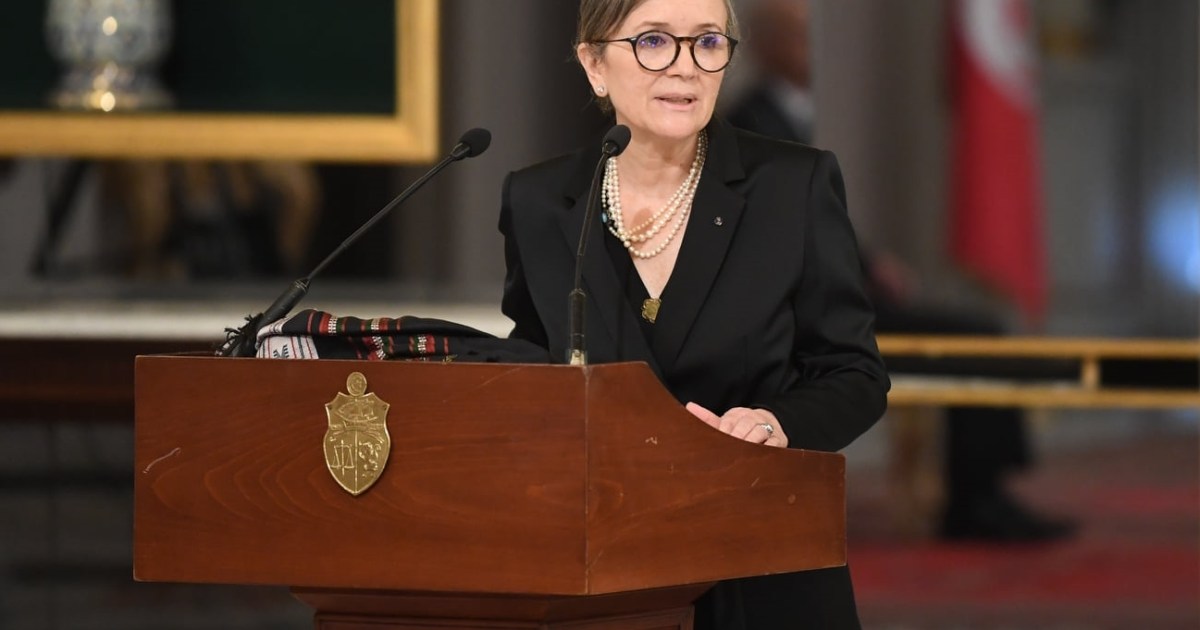The French newspaper "Le Monde" said that Najla Boudin, Prime Minister of Tunisia, who was appointed after about two and a half months of the procedures of Tunisian President Kais Saied, recently announced the formation of her team of 25 ministers, one-third of whom are women, who will be responsible for "restoring confidence" and "" Anti-corruption," and wondered about the room for maneuver that would be available to the new government in light of the exceptional system in which the president is still accumulating his legislative and executive powers.
In a report by her correspondent in Tunisia, Lilia Blaise, the reporter quoted political scientist Youssef Sharif as saying that "the features of the new ministers are reassuring in terms of their skills, but they are not known to the general public and far from politics." Most of them are technocrats from academia, administration or close to Kais Saied , such as his former campaign coordinator, Tawfiq Sharaf El-Din, who was reappointed as Minister of the Interior.
Waiting for a roadmap
The correspondent indicated that the rehabilitation of Sharaf El-Din for this position indicates the desire of the presidency to monitor a ministry known for its independent functions, from the legacy of the police state that was established under the dictatorship of the late President Zine El Abidine Ben Ali. Jaffal, Minister of Justice, testify to the influence of the presidency on Najla Boden's choices.
Despite "some positive signs" such as the presence of more than 9 women ministers for the first time in the government, the Arab Media Academy Shuikha believes that the new government does not have a clear agenda, and according to her, "this feminization should not be just cosmetic. We are still waiting for a road map and deadlines for this." Transitional phase".
In the meantime - as the correspondent says - the executive authority must face a difficult economic situation, in a country suffering from political crises and a lack of reform, especially that the Central Bank of Tunisia expressed in its last report issued on the sixth of October its "deep concern" about " The current critical situation,” and said in a press statement that the deterioration of public finances and the rise in international oil prices “are likely to harm the sustainability of public debt.”
conspirators
As for President Kais Saied, he did not expand the state of economic emergency after the government’s announcement. In his last speech, he attacked the protests that erupted in recent weeks against his policies, and denounced the existence of “conspirators” whose goal was to “attack” institutions and destabilize Tunisian-French relations, through the desire to The sabotage of the Francophonie summit that was scheduled to take place at the end of November in the south of the country, especially as a rally in Bourguiba Street raised anti-French slogans with an indictment against Kais Saied.
The correspondent concluded that the political climate is tense in Tunisia, where rallies in support of Kais Saied are taking place against the protests against his measures, and this shows that the president still enjoys prominent popular support, although he exaggerated it by mentioning the number of "1.8 million demonstrators."
Saeed uploaded pictures of scenes of violence that occurred in the Tunisian parliament in the past two years, saying that it was one of the reasons that led to the measures he took, which Larbi Chouikha saw as a sign "far from the conciliatory and calming tone expected after the government's announcement, especially in the face of the challenges afflicting the country." .

